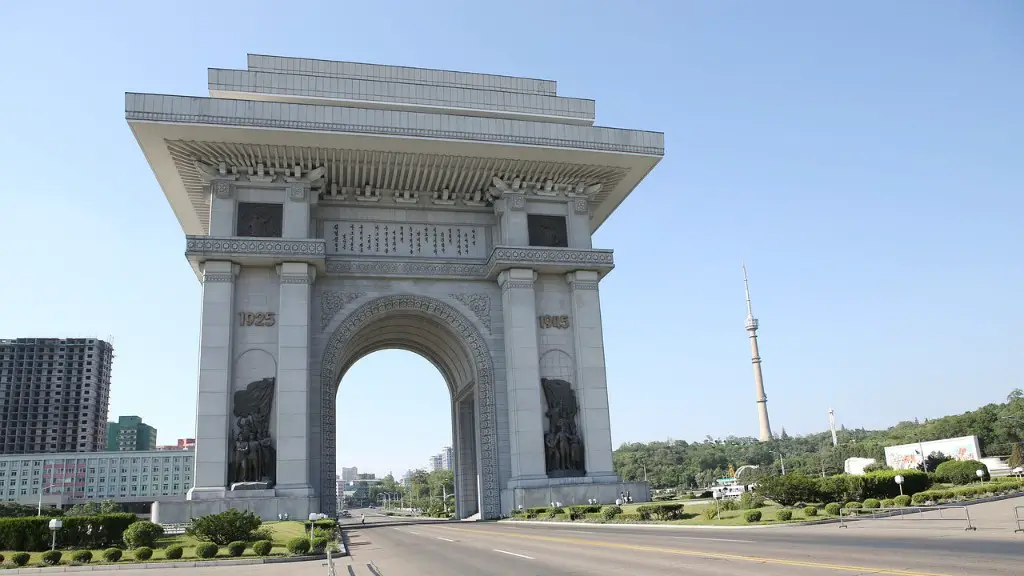The issue of North Korea has been a major source of concern for the international community since the nation’s turbulent transition to a communist regime in 1945, which continues to pose a major problem of instability in East Asia even in the present day. North Korea is well-known to be one of the world’s most oppressive regimes, where citizens’ rights to freedom of expression and any other kind of dissent or political opinion is severely curtailed, and any kind of religious or ideological diversity is completely refused. Curbing North Korean military aggression, nuclear capabilities, and addressing their human rights issues have been among the major points of debate at international platforms, but much debate is still ongoing about the most suitable solution for long-term peace, security and stability of the region.
Most experts agree that a viable long-term solution for the North Korea problem would have to involve various actors in the international community, including the United States and Japan, in addition to South Korea, China and Russia. This is due to the fact that North Korea’s government is largely isolated from the rest of the world, and any kind of diplomatic agreement or resolution would require effective communication and collaboration between these large international players. A number of experts have suggested an international dialog with North Korea, and a multi-track approach to tackle the problem in the form of nuclear disarmament, sanctions, humanitarian aid and diplomatic engagement.
Nuclear disarmament would likely be the top priority in any resolution to the North Korean issue, as it is believed that the countries in the region cannot reach a sustainable peace unless North Korea eliminates its nuclear arsenal. In order to achieve this,it’s important for the international community to put in place stringent economic, political and military sanctions against North Korea,which would put pressure on the regime’s economic and military capabilities, and eventually have the desired effect in terms of nuclear disarmament. Additionally, providing humanitarian aid to North Korean citizens would also help in showing the viability of alternative systems and lifestyles to the current regime’s oppressive system, and encouraging the population to adopt a progressive and peaceful path.
It’s equally important for the international community to engage in diplomatic communications and alliances with North Korea, in order to ensure that the region remains peaceful and secure. To this end, experts have suggested the establishment of diplomatic offices in North Korea, which would allow communication between the international community and North Korea, and in turn inform a more effective resolution of the issue. Additionally, forming regional alliances with South Korea and other regional countries could also help in providing a stronger security system to the region.
Consulting the United Nations can also prove to be a helpful tool in resolving the North Korea issue. The UN has the power and resources to get involved in regional crises, offer diplomatic help and use its members to form regional alliances that are conducive to peace and security. For example, the UN Security Council could impose economic sanctions against North Korea if it does not comply with international norms, which could be the most effective way to put pressure on the regime to disarm and adopt a more peaceful policy.
At the end of the day, what matters is that the international community makes concerted efforts to create a reasonable resolution to the North Korean issue. To that end, all of the aforementioned strategies are essential in order to ensure that the global players come together in order to find a viable solution. To resolve this complex problem, it is important to put diplomacy first, and consider the implications of any action that is taken on North Korea and its people.
Incentives and Programs
In addition to these diplomatic efforts, it could be beneficial to provide North Korea with incentives, since the regime is known to be highly resistant to change. Offering economic or military aid in exchange for nuclear disarmament, progressive reforms or peace negotiations could incentivise North Korea to comply with international demands and ultimately agree to a resolution. Furthermore, providing economic aid to North Korea would also be beneficial for its population and allow the country to move forward and create a new, prosperous future. At the same time, an international agenda should be set up to help North Korea transition to a more open and democratic regime. Such an agenda could include programs like human rights education, initiatives to increase economic opportunities, and the establishment of transparent institutions.
Public Engagement
It is also important that the international community engages the public in dialogue on the North Korea issue. This could involve providing the public with updates on the situation, launching awareness campaigns and fostering discussions on how to help North Korea reform and ultimately reach a resolution. This engagement would also provide an opportunity for individuals to offer their perspectives and become more informed about the situation. In addition, such dialogues could also provide a platform for ordinary individuals to take action and support meaningful initiatives to help the people of North Korea.
Regional Collaboration
Regional collaboration is another essential aspect of the resolution of the North Korea problem. By forming regional alliances, the countries of Northeast Asia could effectively put pressure on North Korea to comply with international demands. A regional military alliance and economic cooperation between the countries could be instrumental in curbing North Korean aggression, and could ultimately lead to a more peaceful and secure region. Moreover, regional collaboration could also help create more effective strategies and measures to address the North Korean issue.
UN Involvement
The United Nations has a major role to play in the resolution of the North Korean issue. UN agencies such as the Security Council and the International Atomic Energy Agency have the power to impose economic sanctions and conduct nuclear inspections, respectively. Additionally, the UN could also get involved in providing humanitarian aid and assistance to North Korea, which would further improve the conditions of ordinary North Korean citizens.
International Support
Lastly, international support is also an important factor in the resolution of the North Korean issue. The support of the international community would help to highlight the importance of this issue, advocate for long-term solutions, and pressure governments and international organizations to take action. International organizations such as the International Campaign to Abolish Nuclear Weapons and various NGOs have been working tirelessly to raise awareness of the North Korean issue and advocate for a viable resolution.


